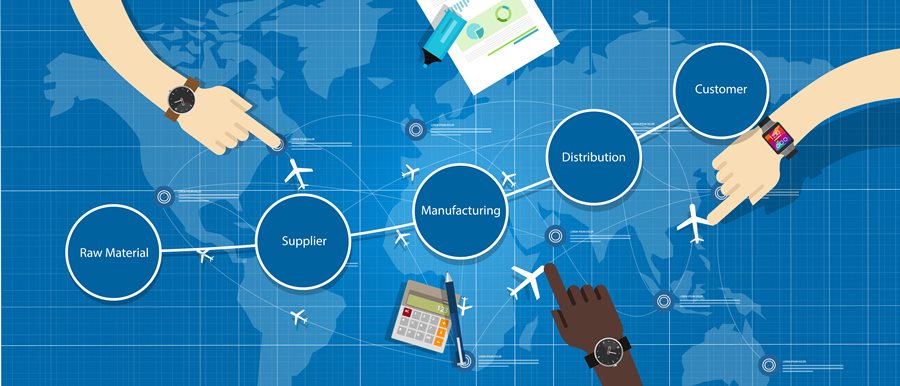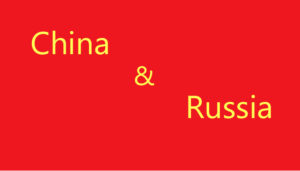I have 55 slaves working for me.
There are fifty-five people somewhere in the world who spend their days making many of the products in my house….and I consider myself on the minimalist side! That’s a disturbing revelation. As a Catholic business leader, it should be disturbing to you too. I’ve posted a link to the survey so you can see how many slaves work for you too.
We tend not to think about the direct link between the people who use a shovel or pickaxe in a faraway land and the products we use every day. Money and goods trade hands multiple times from the ground all the way to the shelf at the store near you or through Amazon.

When I worked in the food industry years ago a food traceability initiative was just starting up to connect the links of every supplier and buyer in the supply chain from “field to plate” in order to strengthen the food safety system of the country.
If the supply chain from end to end exists entirely within the United States, the exchange from seller to buy in the supply chain becomes more clear-cut, especially food. When the product is more complex like technology which requires components from multiple countries tracing the individual parts back to the dirt or a mine becomes infinitely more complex and fuzzy, but not impossible. It makes it easy for the average consumer to think – it doesn’t matter, what really matters is the product in my hand or in my house besides what can I do about it anyway?
As a Catholic business leader you can take a small step by ensuring that your suppliers are getting their raw materials from slave-free sources. Is that considered overreach by you into your supplier’s business or does this help free the estimated 26 million people who are slaves in various supply chains that make everything from soccer balls to batteries?
Let's Connect a Few Supply Chains dots....
Batteries (Phones, power for toys and cars) require Colbalt, 2/3 of which comes from Congo that uses child labor and documented mine safety issues. Switzerland is home to two of the largest players in the global cobalt supply chain, Glencore and Trafigura. Not cool Switzerland, not cool!
Electric car companies are lying to you (the “Zero Emission” scam)
Clothing: Almost 20% of the world’s global cotton production is linked to China’s forced labor.
Source: https://www.antislavery.org/slavery-today/slavery-in-global-supply-chains/
Also:
• Seafood – Commercial fishing in New Zealand uses indentured servants. Tell me it’s not true friendly and hip New Zealand!
• A major tomato supplier in Florida was holding workers without pay and against their will between harvesting seasons so that the migrant workers wouldn’t leave. Many fast-food companies and retailers benefited from this supplier. https://www.rand.org/blog/rand-review/2017/12/justice-for-florida-farmworkers-qa-with-susan-marquis.html
Source: Forbes Magazine: “Slavery In The Supply Chain: What Are You Doing About It?”
Right here at home:
“Woke” companies Apple, Nike, and Coca-Cola Lobby To Preserve Slavery Of Uighurs By Communist China
https://thefederalist.com/2020/11/30/apple-nike-coca-cola-lobby-to-preserve-slavery-of-uighurs-by-communist-china/
and finally for this blog post anyway….
A study by The Australian Strategic Policy Institute (ASPI), a non-partisan think tank: Nike, BMW, Apple, Sony, Google, Lacoste, and Nintendo Among 83 Brands Using Chinese Muslim Slave Labor.
Source: https://www.breitbart.com/asia/2020/03/02/study-nike-apple-bmw-among-83-brands-using-chinese-muslim-slave-labor/
Did you catch that? 83 brands!!!
So, why do “we” off-shore labor and production to China which still remains a godless and communist country? The answer: It’s a smart business decision in the world of unbridled capitalism. The smart people, the best and brightest from the best business schools will always move to cheap labor, in the case of the article above, slave labor.
Life is cheap and often expendable in China as in many other countries in the world because they do not recognize the dignity of their citizens because God is far or non-existent in their hearts. It’s easy to set up shop “over there” without ever seeing how the proverbial sausage is made, never looking into the eyes of those who are making your stuff so you can sell it here.
As for you, Catholic business leader, God should be dwelling in your heart. The Holy Spirit should drive you to be sure all the elements that make up your product or service are sourced from a slave-free supply chain. In your own office, do your employees have a “slave” mindset?
This is what the Catholic Church teaches about the human person:
Respect for human dignity
- A just society can become a reality only when it is based on the respect of the transcendent dignity of the human person. The person represents the ultimate end of society, by which it is ordered to the person: “Hence, the social order and its development must invariably work to the benefit of the human person, since the order of things is to be subordinate to the order of persons, and not the other way around”[246]. Respect for human dignity can in no way be separated from obedience to this principle. It is necessary to “consider every neighbour without exception as another self, taking into account first of all his life and the means necessary for living it with dignity”[247]. Every political, economic, social, scientific and cultural programme must be inspired by the awareness of the primacy of each human being over society[248].
- In no case, therefore, is the human person to be manipulated for ends that are foreign to his own development, which can find complete fulfilment only in God and his plan of salvation: in fact, man in his interiority transcends the universe and is the only creature willed by God for itself[249]. For this reason neither his life nor the development of his thought, nor his good, nor those who are part of his personal and social activities can be subjected to unjust restrictions in the exercise of their rights and freedom.
The person cannot be a means for carrying out economic, social or political projects imposed by some authority, even in the name of an alleged progress of the civil community as a whole or of other persons, either in the present or the future. It is therefore necessary that public authorities keep careful watch so that restrictions placed on freedom or any onus placed on personal activity will never become harmful to personal dignity, thus guaranteeing the effective practicability of human rights. All this, once more, is based on the vision of man as a person, that is to say, as an active and responsible subject of his own growth process, together with the community to which he belongs.
So, how many slaves work for you as a consumer? Find out here: https://slaveryfootprint.org/




